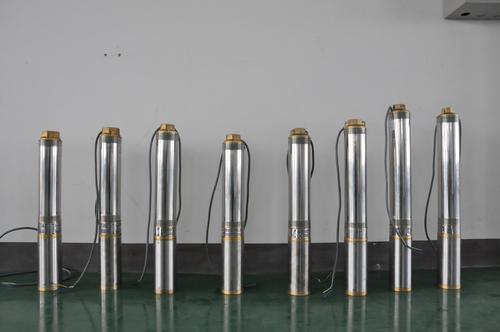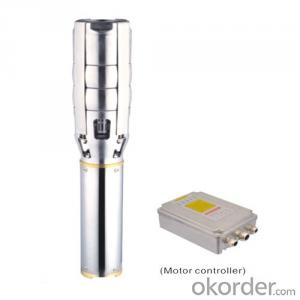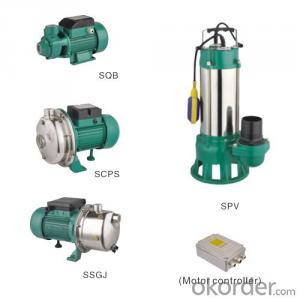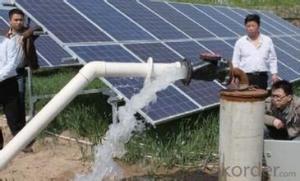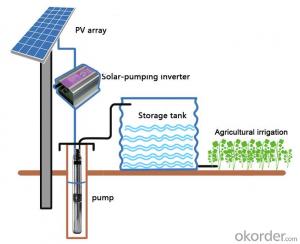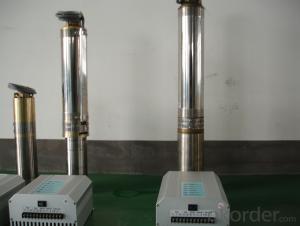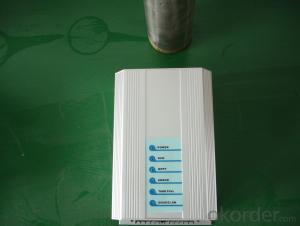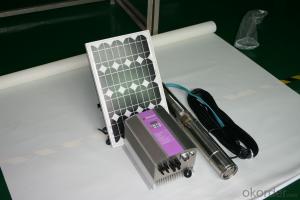Solar Pump 5hp DC Solar Deepwell Water Pump
- Loading Port:
- Shanghai
- Payment Terms:
- TT OR LC
- Min Order Qty:
- -
- Supply Capability:
- 300 set/month
OKorder Service Pledge
OKorder Financial Service
You Might Also Like
Motor 24V:
1 matainance-free brushless DC motor
2 water filled
3 premium materials,Stainless steel SS304
4 no electronic in the motor
rated power:0.8kw 1kw
effiency:more than 95%
motor speed:1750rpm
isulation class:F
enclousre class:IP68
submersion: max 250m
Controller SPC1000:
power:max.1kw
input voltage:max.120V
motor current:max.10A
effiency:max.95%
ambient Tem:-20C-----50C
enclosure:IP54
how is the rotor made:
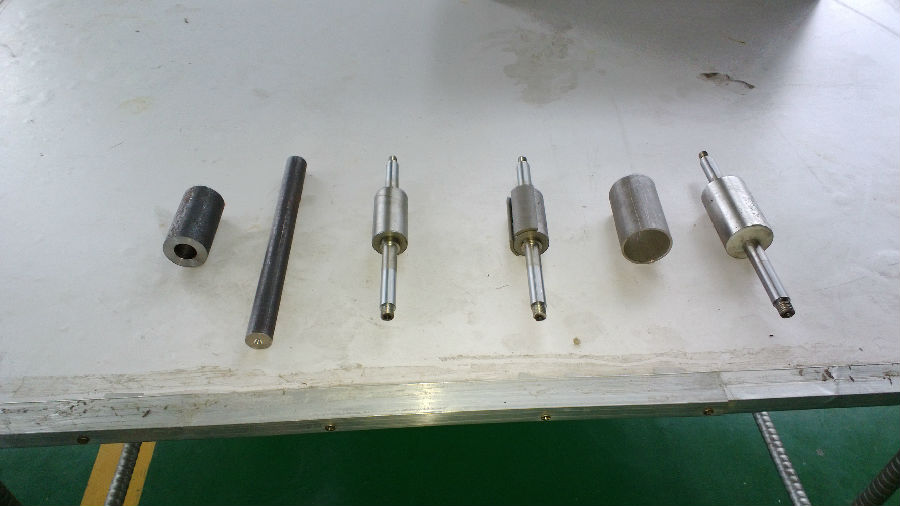
how is the motor made:
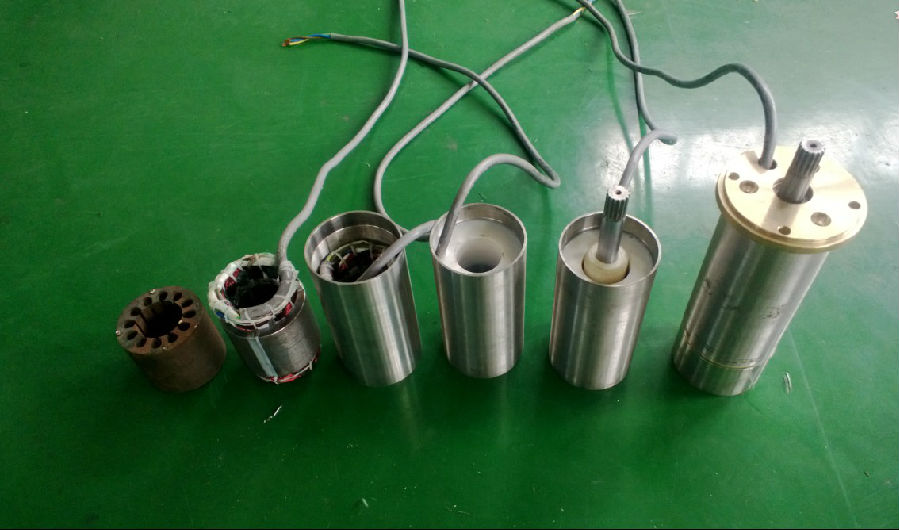
the pump :
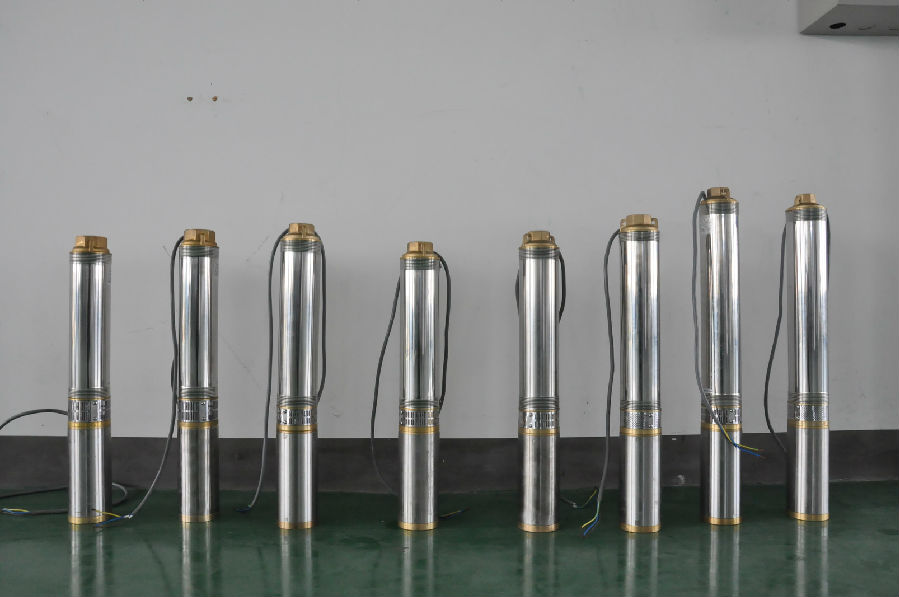
controller terminal connection:
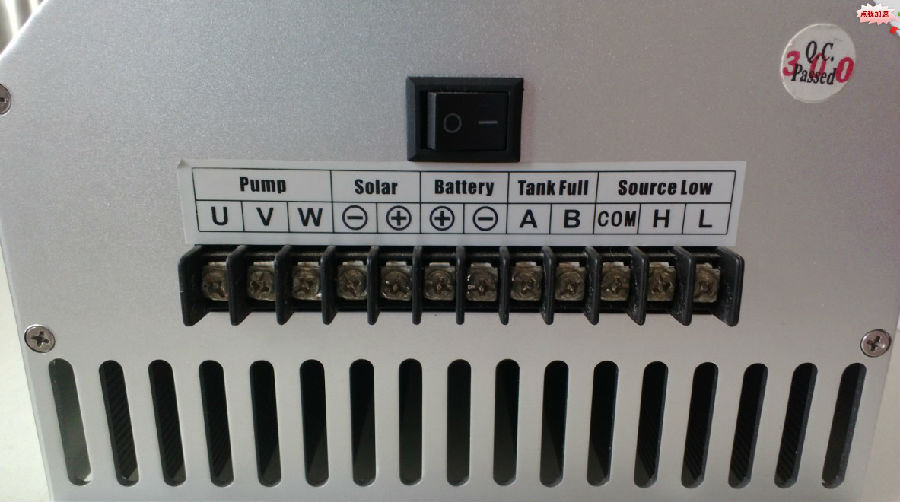
The permanent magnet:
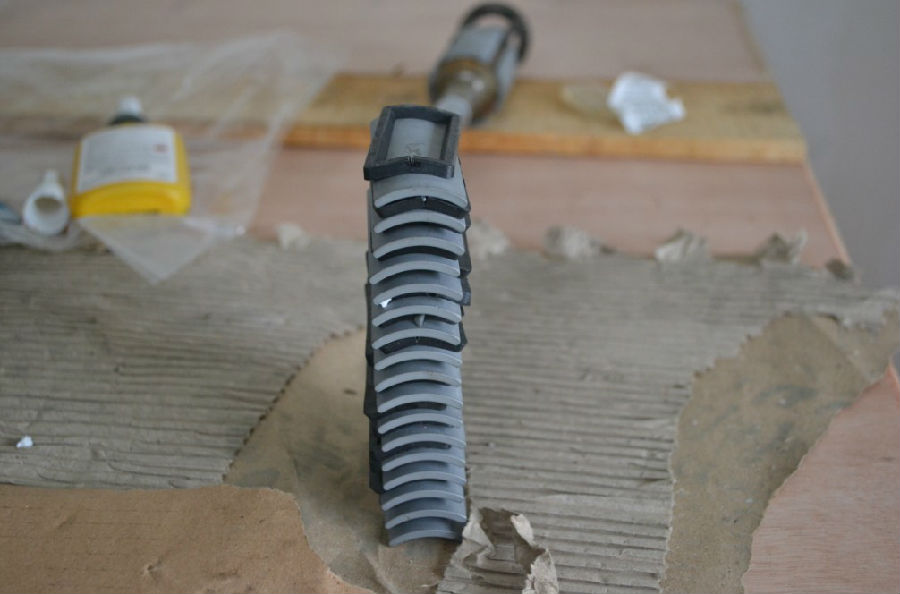
the impeller:
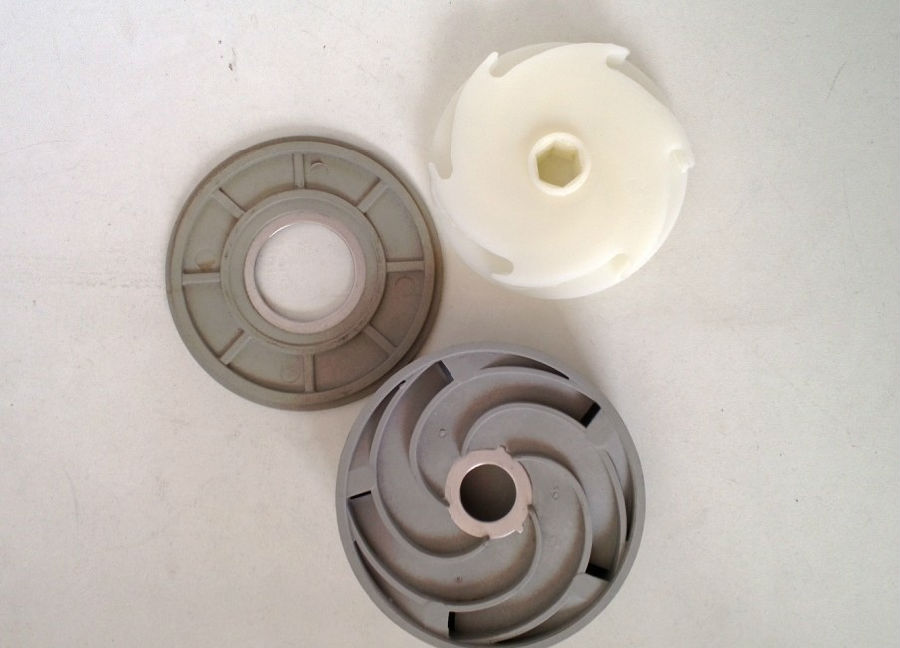
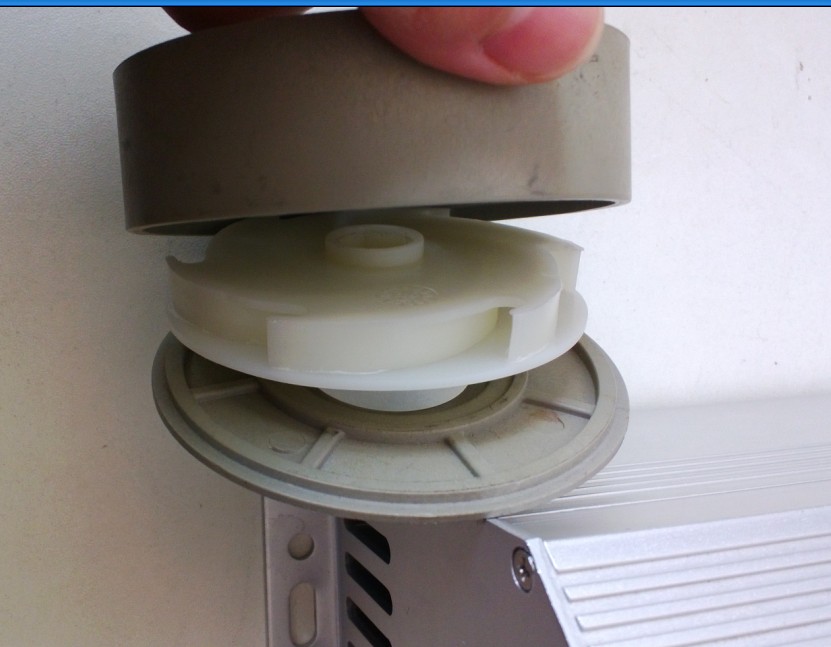
controller box:
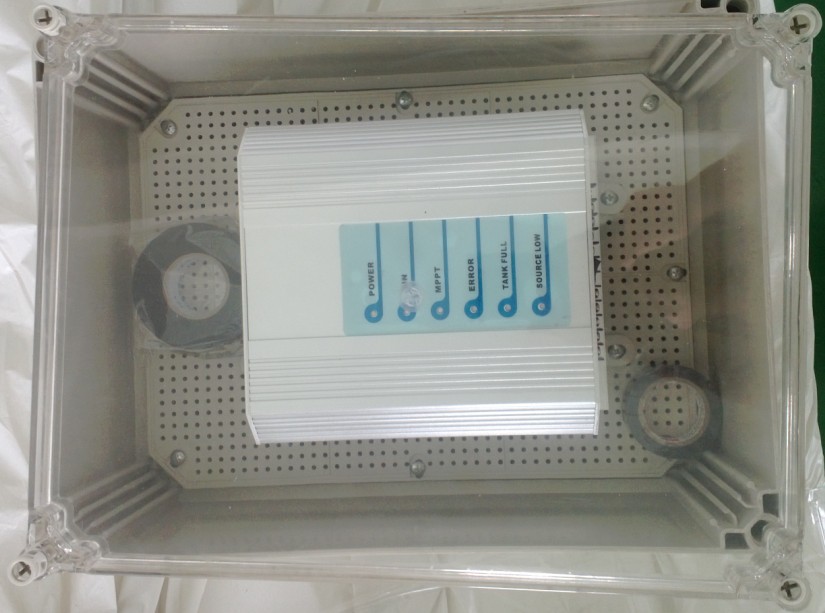
the senors:
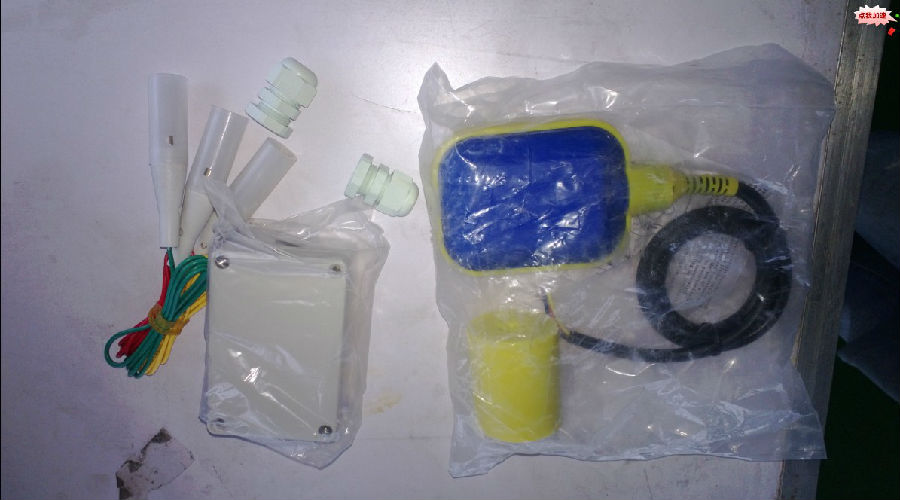
the test:
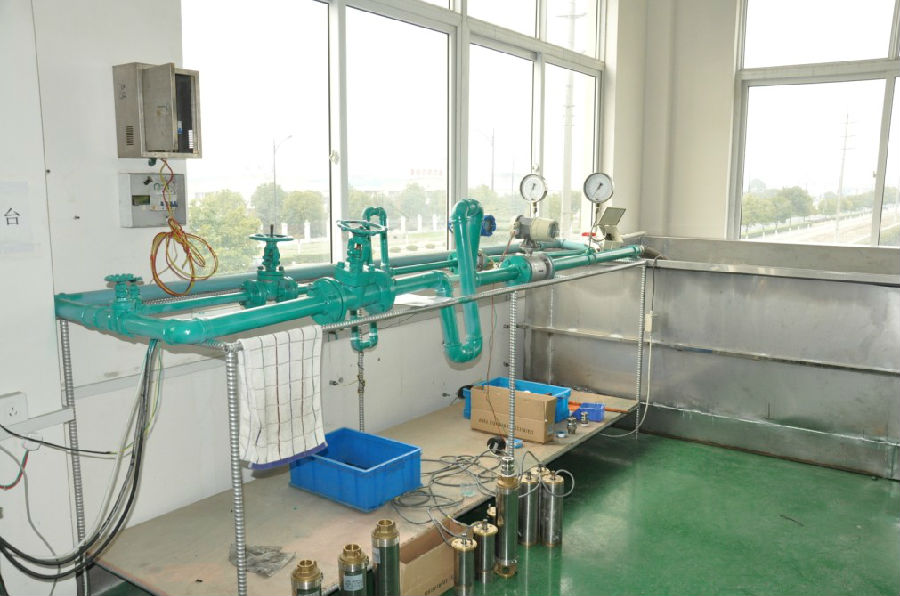
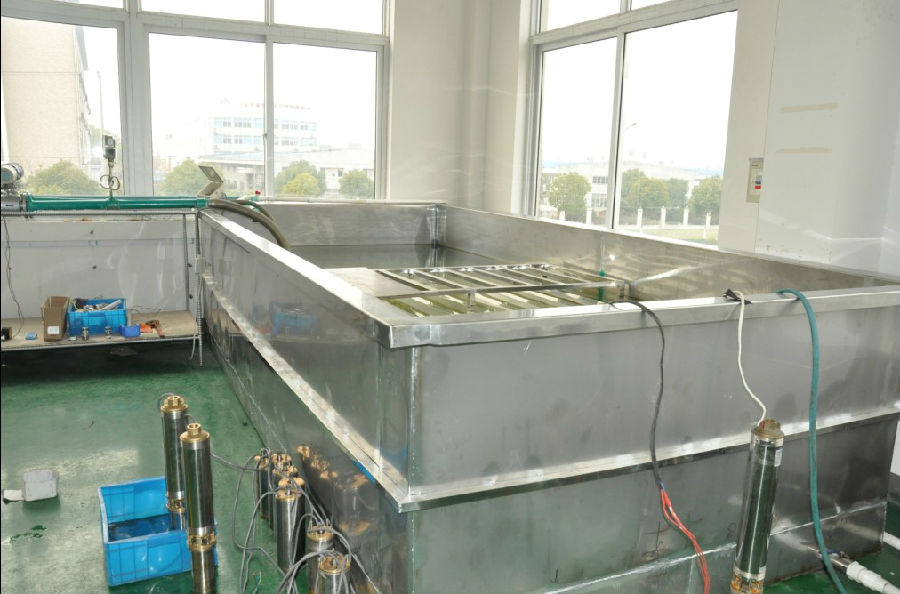
the application:
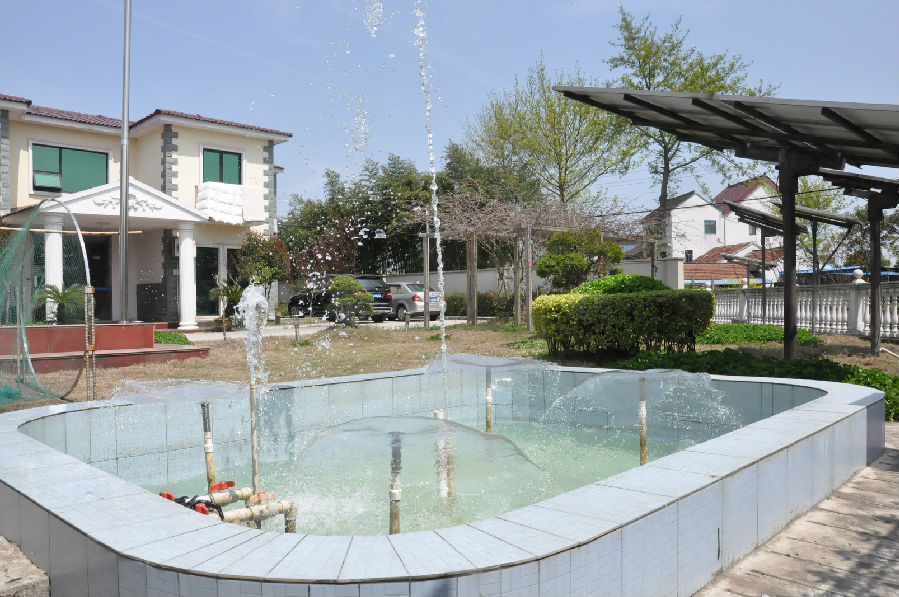
the package:
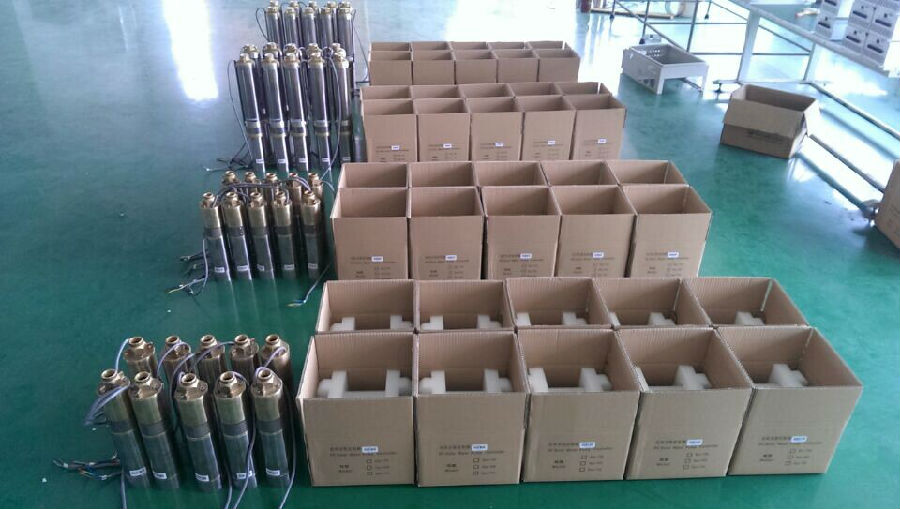
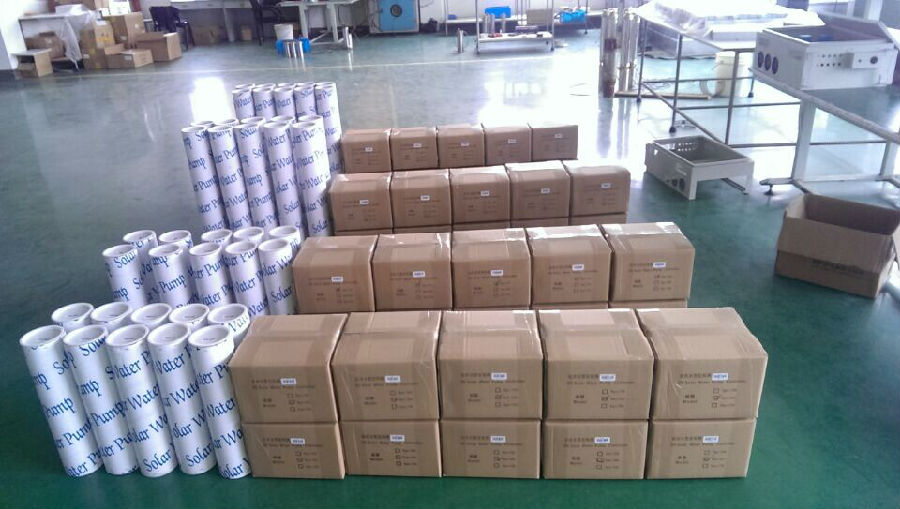
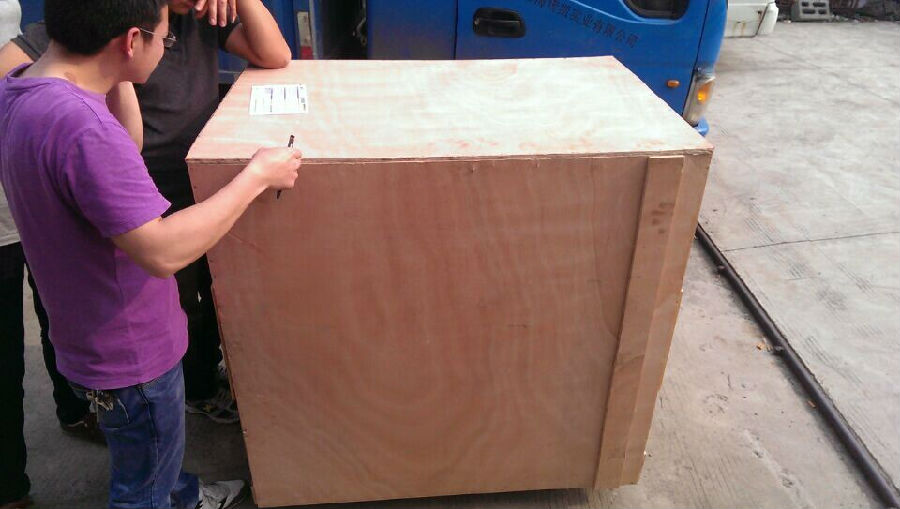
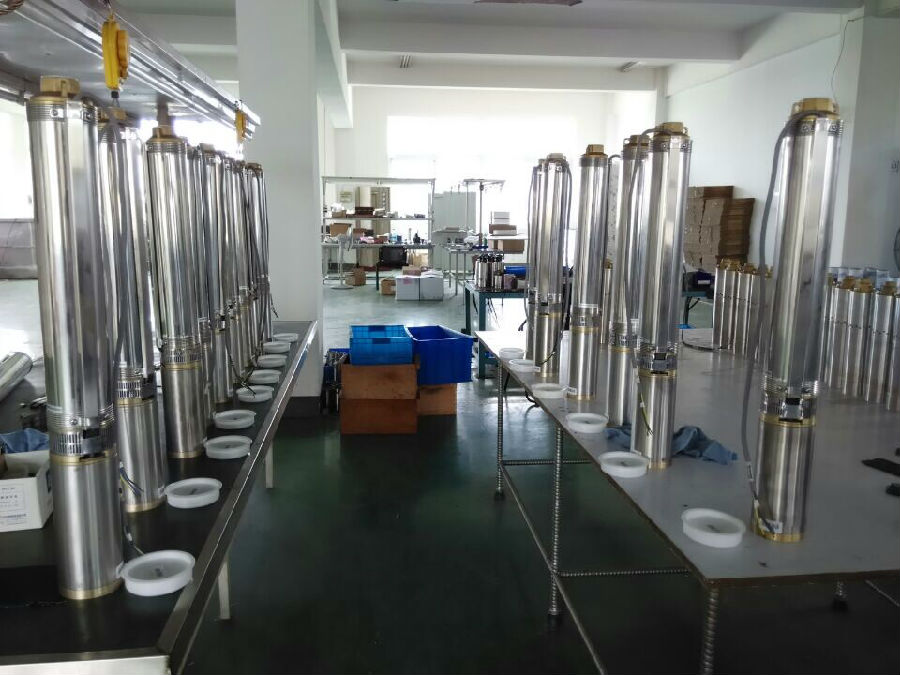
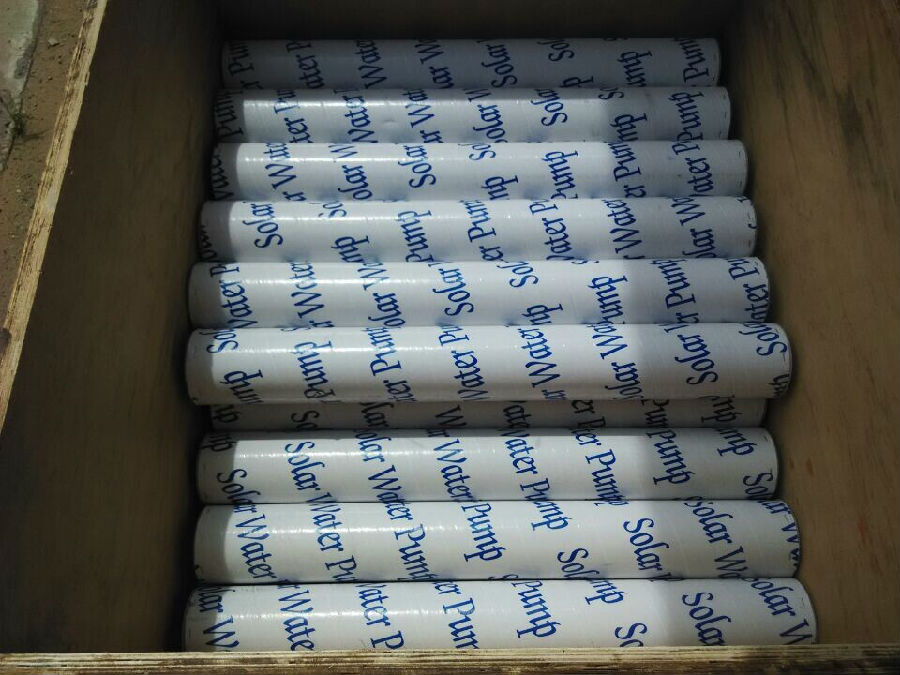
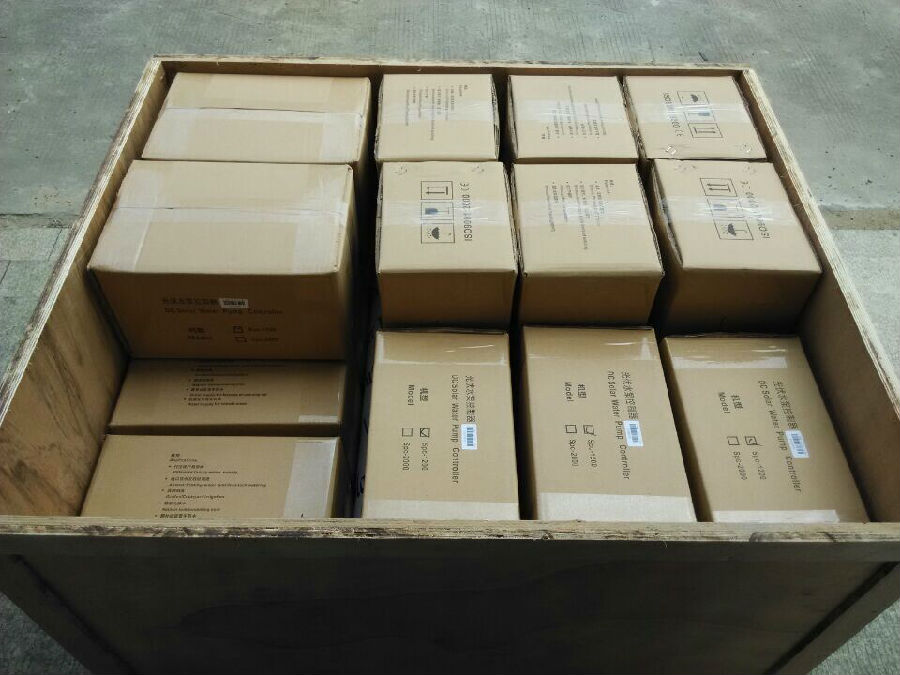
- Q: What are the maintenance requirements for a solar pump?
- Compared to traditional pumps, the maintenance requirements for a solar pump are relatively low. However, to ensure optimal performance and longevity of the system, it is essential to perform regular checks and maintenance tasks. A primary maintenance requirement is to keep the solar panels clean and free of debris. Dust, dirt, or other obstructions can reduce the efficiency of the panels and decrease the pump's output. It is crucial to inspect and clean the solar panels regularly, especially in dusty or windy areas, to maximize energy generation. It is also important to periodically inspect and clean the pump and its components. This includes checking for leaks, loose connections, or signs of wear. Maintaining all components in good condition helps prevent potential malfunctions or breakdowns. Another maintenance requirement is monitoring the water source for blockages or contaminants. Depending on the water quality, filters or strainers may need regular cleaning or replacement to prevent clogging and maintain a steady water flow. For off-grid solar pump systems, it is vital to monitor the battery system. Checking the battery voltage, electrolyte levels (for lead-acid batteries), and ensuring proper charging are necessary for longevity and reliability. Regular inspections of the mounting structures, wiring, and electrical connections are crucial. These components should be secure and free from damage or corrosion to maintain a safe and efficient system. Lastly, it is recommended to have a professional technician or installer conduct an annual maintenance check to ensure all components are functioning correctly and to address any potential issues. They can perform more in-depth inspections, tests, and provide necessary repairs or replacements. By following these maintenance requirements, a solar pump can operate efficiently and reliably for many years, providing a sustainable and cost-effective solution for water pumping.
- Q: Can solar pumps be used for wastewater treatment or sewage systems?
- Yes, solar pumps can be used for wastewater treatment or sewage systems. Solar-powered pumps provide a sustainable and environmentally friendly solution for pumping and treating wastewater. They help in reducing energy costs, minimizing carbon emissions, and providing reliable water supply for sewage treatment processes.
- Q: Do solar pumps require maintenance?
- Yes, solar pumps do require some maintenance. Regular maintenance tasks may include cleaning the solar panels to ensure optimal energy production, checking and cleaning the pump's intake screen or filter, inspecting and tightening connections, and occasionally replacing worn-out parts. However, compared to traditional pumps, solar pumps generally require less maintenance due to their simpler design and fewer mechanical components.
- Q: How does a solar pump handle sediment in the water?
- A solar pump typically handles sediment in the water by utilizing a filtration system. The pump is designed with filters that prevent sediment and larger particles from entering the system, ensuring a cleaner flow of water. Additionally, regular maintenance and cleaning of these filters is required to maintain the pump's efficiency and prevent clogging.
- Q: What is the typical maintenance cost for a solar pump system?
- The typical maintenance cost for a solar pump system can vary depending on various factors such as the size and type of the system, the location, and the specific components used. However, in general, the maintenance cost for a solar pump system is relatively low compared to traditional pump systems. The main maintenance activities for a solar pump system typically include cleaning the solar panels, inspecting and maintaining the pump and motor, checking and replacing any worn out or damaged parts such as filters or seals, and ensuring proper functioning of the control system. The cost for these maintenance activities can range from a few hundred to a few thousand dollars per year, depending on the complexity and scale of the system. Additionally, it is recommended to have periodic professional inspections and servicing to ensure optimal performance and longevity of the system, which may incur additional costs. It is important to note that while the upfront installation cost of a solar pump system may be higher than a conventional pump system, the long-term operational and maintenance savings can outweigh the initial investment. The use of renewable energy sources like solar power also eliminates the need for fuel or electricity, resulting in significant cost savings over time.
- Q: How does a solar pump handle water with high alkalinity?
- A solar pump can handle water with high alkalinity without any issues. The alkalinity of the water does not affect the functioning or efficiency of the solar pump in any way.
- Q: How does a solar pump handle water source contamination from nuclear power plants?
- A solar pump does not directly handle water source contamination from nuclear power plants. However, it can be used as an alternative power source for water treatment systems that are designed to remove contaminants, including those present in water sources affected by nuclear power plant operations.
- Q: Are there any limitations to the distance a solar pump can pump water?
- Yes, there are limitations to the distance a solar pump can pump water. The main limitation is the power output of the solar panel, as it determines the pump's capacity and efficiency. Factors such as the height or elevation the water needs to be lifted, the length and diameter of the pipes, and the flow rate required also impact the pump's ability to transport water over longer distances.
- Q: Can a solar pump be used to circulate water in a pond or lake?
- Yes, a solar pump can be used to circulate water in a pond or lake. Solar pumps utilize energy from the sun to power the pump, providing an eco-friendly and cost-effective solution for water circulation in outdoor bodies of water.
- Q: What is the efficiency rating of a solar pump?
- The efficiency rating of a solar pump refers to the percentage of solar energy that is converted into mechanical work or pumping power. It typically ranges between 15% to 30%, depending on the specific design and quality of the pump.
Send your message to us
Solar Pump 5hp DC Solar Deepwell Water Pump
- Loading Port:
- Shanghai
- Payment Terms:
- TT OR LC
- Min Order Qty:
- -
- Supply Capability:
- 300 set/month
OKorder Service Pledge
OKorder Financial Service
Similar products
Hot products
Hot Searches
Related keywords

